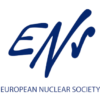IPCC Report: “The Time For Action Is Now”
The latest Intergovernmental Panel on Climate Change (IPCC) report says that without “immediate and deep emissions reductions across all sectors, limiting global warming to 1.5°C is beyond reach“.
The report estimates that if global warming is to be limited to around 1.5°C “global greenhouse gas emissions need to peak before 2025 at the latest and be reduced by 43% by 2030; at the same time methane would also need to be reduced by about a third“.
Published last 4th April, the document says there are options in all sectors to “at least halve emissions by 2030 … limiting global warming will require major transitions in the energy sector. This will involve a substantial reduction in fossil fuel use, widespread electrification, improved energy efficiency, and use of alternative fuels (such as hydrogen)“.
The document also identifies that “when switching to low-carbon energy sources – renewable sources, nuclear power, and fossil or bioenergy with CCS [carbon capture and storage] – electricity is expected to become a more pervasive energy carrier“.
According to the report, all the lower emissions sources of energy, including nuclear, renewables, and some biofuels, could be essential in all pathways.
The IPCC highlights that multiple low-carbon technologies have recently shown rapid progress in cost, performance, and adoption, so enhancing the feasibility of rapid energy transitions.
Nuclear power, as a proven and reliable source of low-carbon energy, has grown as well, but its adoption has been slower than the growth rates anticipated in some pathways to net zero. Indeed, the nuclear generation grew 9% between 2015 and 2019 and accounted for 10% of total generation in 2019.
However, the report suggests that nuclear contributions may be enhanced by new generations of reactors, including the small modular reactors.
The important role that nuclear energy must play now and in the long-term mitigation of climate change has been underlined also by Sama Bilbao y Leon (World Nuclear Association director general), recently interviewed by ENS :
Nuclear is far more than a transitional source. […] It is right to think of the current generation of nuclear reactors in operation in Europe as having a role in facilitating the transition to a clean energy future. With the potential for long-term operations, many of the reactors generating today could continue to do so for much of the period towards 2050 or even beyond. Nuclear fission does have a very important role to play in allowing nuclear to make an even greater contribution to net zero.
IPCC “Climate Change 2022: Mitigation of Climate Change” is available here.
